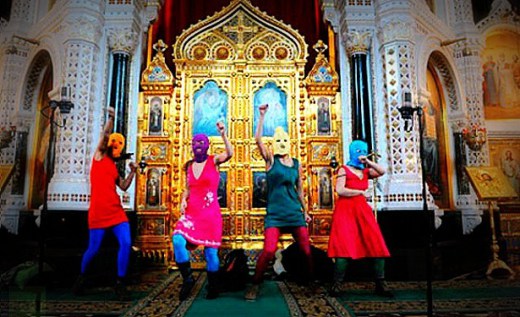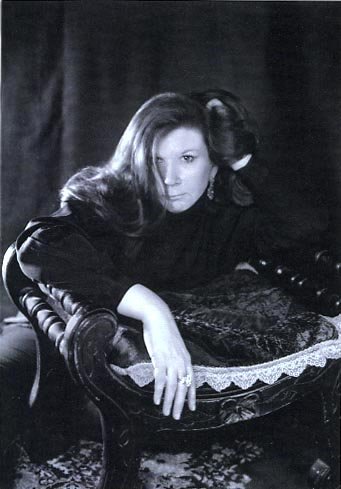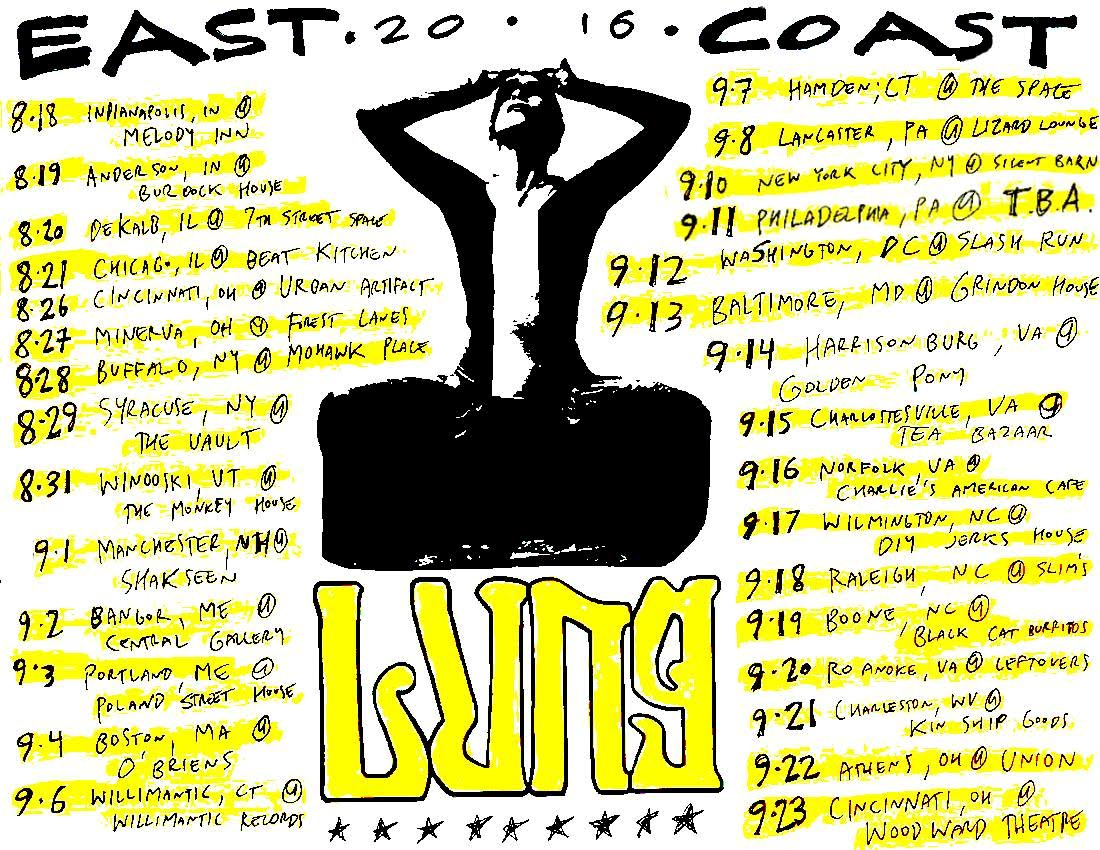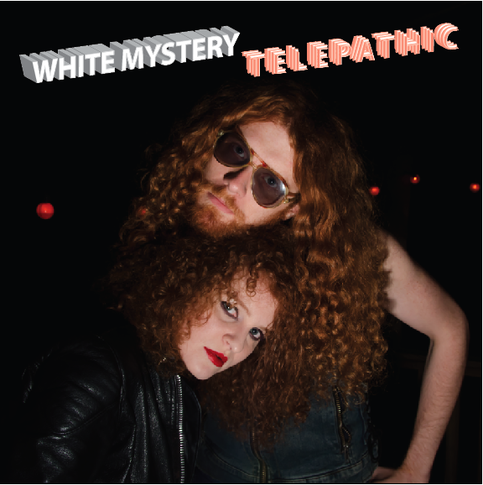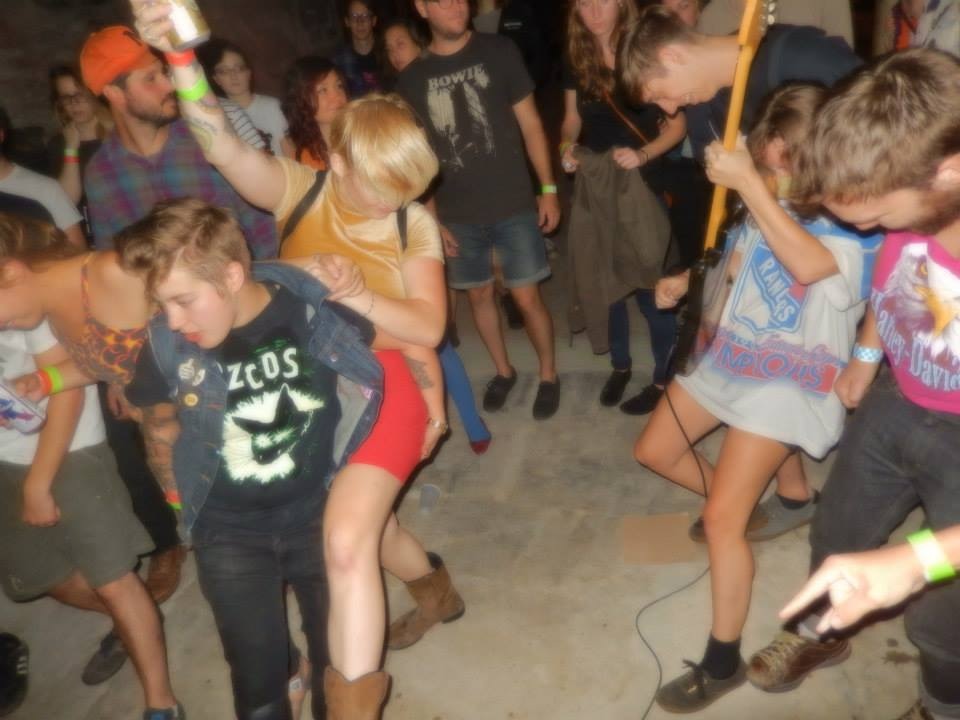If you followed the news coverage of the 2012 arrest and trial of three members of Pussy Riot, the Russian feminist punk collective, then you know that Nadia, Masha, and Katia are not the only women in the group, even if they are the most famous. Pussy Riot is one part punk music, one part performance art, and one part guerrilla feminism. Members refer to the band as “they,” refuse to give details about their activities, and perform in colorful balaclavas to protect their anonymity. They perform spontaneously and in guerrilla fashion in public spaces in Moscow, such as beauty salons, prison rooftops and, of course, church altars.

Pussy Riot was formed on the same day that Dmitry Medvedev announced he would be stepping aside to make way for Vladimir Putin’s return to the presidency. Pussy Riot viewed the move as a return to authoritarianism and corporate control of the country – and they were not afraid to sing about it. On February 21, 2012, during their unsanctioned “Punk Prayer” concert on the altar of Christ the Savior Cathedral in Moscow (their fifth performance), they took on both Putin and the Russian Orthodox Church, singing “Mother of God, rid us of Putin!” kneeling and bowing in mock reverence. Nadia, Masha, and Katia were arrested for “disrupting social order by an act of hooliganism”; other unknown Pussy Riot members escaped.
In Pussy Riot: A Punk Prayer (HBO), an award-winning documentary about the trial, anonymous members of Pussy Riot are interviewed on camera in their colorful balaclavas. They state “We’re not going to kill anyone. We use peaceful methods, metaphor and art. Anyone can take on this image. Masks, dresses, musical instruments, lyrics, […] and just think of a good place to perform.”
The film focuses primarily on the three most famous members who are interviewed sans ski masks. Speaking about the satirical “Punk Prayer” performance that led to her arrest, Nadia says simply, “A patriarch stands at the altar, but a woman should occupy it. She is not a sinful creature.”
While the film includes perspectives from the faithful, who argue that the church is uniquely sacred because of anti-religious policies that took effect in 1917 (including the demolition of Christ the Savior Cathedral), it’s also clear that anti-feminist beliefs are at the heart of those who work to keep Pussy Riot’s members imprisoned. “We have no future if we mock our sacred spaces,” one protester says. “The government must protect the feelings of believers. It’s blasphemy.”
But because there is no law against blasphemy in Russia, the state could only charge the three women with hooliganism. Of course, Pussy Riot sees their work differently: “As artists, our goal is to change humanity, to transform consciousness a little bit. To free society from prejudices and stereotypes. To be the voice of the voiceless. We need to destroy the whole system. [….] Talk and compromise gets you nowhere. Riot, riot, revolution.”
That statement echoes one of the band’s most famous lyrics: “Riot! Riot! Show them your freedom! A citizen’s anger!”
I recommend the film, which follows the trial and also humanizes Nadia, Masha and Katia by interviewing their families and offering some biographical history. Masha, for example, loved the Spice Girls as a girl and got her start as an activist as a teenager protesting against the clearcutting of forests in rural Russia. The best moments, however, are from the trial itself. The three women are so articulate and brilliant and carry themselves with such dignity in the face of their persecution, it gives you chills to watch. In her closing statement for example, Katia reads her prepared remarks:
We made intelligent people recognize that Orthodox culture doesn’t only belong to the church, the patriarch and Putin. It can also be used to promote an uprising of the opposition. The massive impact of our media invasion of the cathedral took the government by surprise. They tried to present our performance as a prank pulled by heartless, militant atheists. They miscalculated. We expect a guilty verdict: compared to the judicial machine, we are nobodies who lost. On the other hand, we have won. The whole world now sees that the criminal case against us has been fabricated. The system cannot conceal the repressive nature of this trial.
Pussy Riot was indeed found guilty and have since finished their two-year prison sentences. Since their release, they have remained active in speaking out and making political music, including U.S. context. On their 2016 album xxx, their song “Make America Great Again” is an obvious reference to the Trump presidential campaign rhetoric: “Let other people in / Listen to your women / Stop killing black children / Make America Great Again!”
According to Nadia in Pussy Riot: A Punk Prayer, “Pussy Riot is a form of oppositional art. It is political action that utilizes artistic forms. It is a form of civic activism against a corporate political system that uses its power against basic human rights. [….] We are freer than those who prosecute us.”


